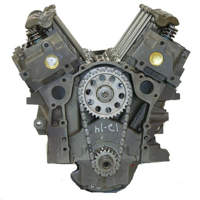What Makes a Vehicle Engine Run Smoothly: Leading Tips for Optimum Treatment
The smooth operation of an automobile engine is fundamental to both efficiency and long life, making ideal treatment a vital obligation for car proprietors. Secret practices, such as normal oil changes, keeping coolant levels, and monitoring air filters, are essential yet usually neglected. The value of examining trigger plugs and ensuring correct tire stress can not be downplayed. Recognizing how these aspects adjoin can improve not just the effectiveness of your lorry yet likewise your total driving experience. What specific actions should you focus on to guarantee your engine continues to be in peak condition?
Regular Oil Changes
One of the most vital facets of automobile upkeep is ensuring your engine receives normal oil adjustments. Engine oil lubes internal elements, decreases friction, and aids keep ideal operating temperatures. Over time, oil degrades as a result of warmth, pollutants, and the natural byproducts of combustion, leading to lowered effectiveness and prospective engine damages.
A lot of producers recommend changing the oil every 5,000 to 7,500 miles, yet this period can vary based on driving conditions and oil kind. Synthetic oils may enable for longer intervals between adjustments. Regular oil changes not only boost engine performance yet also enhance gas efficiency, as clean oil advertises smoother operation.
Disregarding oil adjustments can lead to sludge build-up, which harms circulation and can bring about severe engine problems. It is important to examine oil levels regularly and check for any uncommon changes in shade or consistency, which could show contamination or deterioration.

Preserving Coolant Degrees
Maintaining correct coolant levels is essential for stopping engine getting too hot and guaranteeing optimum performance. The coolant, normally a mix of water and antifreeze, flows with the engine, soaking up heat and avoiding thermal stress and anxiety. Insufficient coolant can result in enhanced engine temperature levels, which might cause serious damages or even overall engine failing.
To keep optimal coolant levels, regularly examine the coolant storage tank, typically located in the engine bay. Make sure the coolant is loaded to the recommended mark, as suggested in your automobile's proprietor guidebook. It is a good idea to inspect the levels at least once a month or soon journeys, specifically throughout extreme weather.
If you see that the coolant degree is constantly low, there may be a leakage in the air conditioning system, which need to be resolved quickly to avoid further difficulties. 2.2 ford ranger engine. In addition, purging the coolant system every a couple of years can assist eliminate any accumulated particles and make sure effective heat exchange
Checking Air Filters

It is recommended to inspect the air filter every 12,000 to 15,000 miles, or more regularly if driving in adverse or messy conditions. A straightforward aesthetic evaluation can frequently disclose whether the filter is filthy or damaged. If the filter shows up discolored or has noticeable dirt accumulation, it needs to be replaced immediately.
Using a high-grade air filter developed for your specific lorry model can better enhance engine efficiency. Furthermore, some lorries may profit from reusable filters that can be cleansed and reinstalled, supplying a affordable and eco pleasant choice.
Inspecting Glow Plugs
Flicker plugs are vital parts of a lorry's ignition system, directly impacting engine efficiency and efficiency. They produce the stimulate that fires up the air-fuel mix in the combustion chamber, helping with the engine's power generation. Regular evaluation of ignition system is essential for find more info maintaining optimum engine feature and stopping prospective issues.
Dark residue or oil down payments can indicate inappropriate combustion, while a blistered or white appearance may recommend getting too hot. Both conditions require immediate focus to prevent more engine damages.
It's suggested to check ignition system every 30,000 miles, or as recommended in your vehicle's proprietor guidebook. Furthermore, consider changing them according to the producer's standards, as old or used ignition system can result in misfires, lowered gas effectiveness, and enhanced exhausts.
Monitoring Tire Stress
Under-inflated tires can lead to lowered fuel effectiveness, raised tire wear, and compromised handling. Routine surveillance of tire pressure is necessary for ideal lorry operation.
Tire pressure should be inspected at the very least once a month and eventually trips. Use a trusted tire stress scale to gauge the stress when the tires are chilly, ideally before the car has been driven for at the very least three hours. Describe the lorry's proprietor guidebook or the placard situated on the driver's side door jamb for the manufacturer's recommended pressure levels.
It is very important to note that tire pressure can fluctuate with modifications in temperature; a decrease of 10 ° F can lead to a 1-2 psi reduction in pressure. Additionally, visually inspect tires for any type of indications of wear or damages throughout your surveillance regimen. read more Preserving appropriate tire stress not just improves car security but also boosts gas effectiveness and extends tire life, eventually contributing to a smoother engine performance.
Conclusion
Finally, maintaining a cars and truck engine's smooth procedure needs persistent attention to numerous vital elements. Regular oil adjustments, appropriate coolant levels, clean air filters, well-kept stimulate plugs, and ideal tire stress collectively add to enhanced efficiency and long life. Following these upkeep methods not only boosts gas performance but additionally promotes a much safer driving experience. Eventually, an aggressive method to engine treatment is necessary for guaranteeing integrity and functionality gradually. 2.2 ford ranger engine.
One of the most important facets of vehicle upkeep is guaranteeing your engine receives routine oil adjustments. Engine oil lubes internal elements, lowers friction, and assists keep optimal operating temperatures. Normal oil adjustments not only boost engine performance yet also boost fuel performance, as tidy oil promotes smoother operation.
Not enough coolant can lead to enhanced engine temperature levels, which may create serious damages or even overall engine failing.
